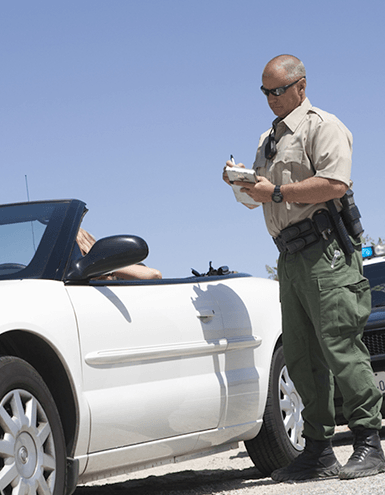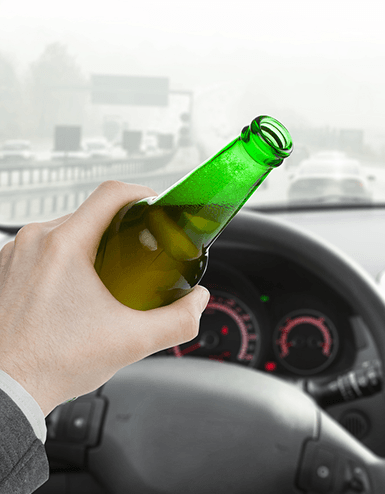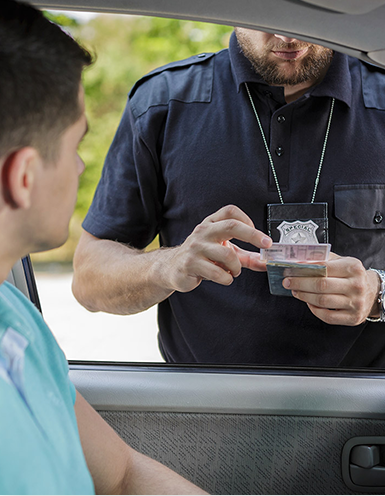DUI Lawyer in Athens, Georgia
Nationally Ranked DUI Defense Available for Athens and North Georgia
(706) 543-0002Athens, Georgia DUI Attorney
Charged with DUI? Don’t waste time…you need help now. Call Wiltshire Defense to get a skilled former DUI prosecutor working for you.
Mo Wiltshire is helping good people in big trouble all over Georgia...he can help you!
View Reviews
Reputation, Ranking and Results
Mo Wiltshire, the former Solicitor-General for Athens, GA, is renowned as a top rated DUI Attorney in North Georgia and is a former DUI Prosecutor. According to the National Advocacy for DUI Defense, Mo Wiltshire has been one of the top DUI Defense Lawyers in Georgia for five years running.
Mo Wiltshire is peer review rated at the highest possible level, AV Preeminent by Martindale-Hubbell. This rating comes from anonymous surveys of judges, lawyers and prosecutors in a peer review process administered by the oldest and most established attorney peer review rating organization in the United States. Mo holds a membership in The National Association of Distinguished Counsel, designating him in the “Top One Percent” of practicing attorneys in the United States.
Mo has also earned the highest possible ranking for a DUI Defense Attorney, “Superb” and a perfect “10 out of 10″ by the world’s largest online legal directory and rating organization, AVVO. Click on the AVVO badges on this page to link to Mo Wiltshire’s profile on AVVO.com.
Mo Wiltshire has acquired his reputation for excellence the old fashioned way by earning it in courtrooms all over Georgia. He is nationally ranked as a defense attorney and advocate for his clients by many organizations.
Read Martindale Reviews
How to Choose Your DUI Lawyer
Are you looking for the best lawyer available to help you with your case…a lawyer who really can produce results that help you? You need to ask any lawyer you are considering some tough questions.
Is the lawyer a Former DUI Prosecutor?
Has your lawyer ever prosecuted DUI cases in North Georgia?
Does he have the background to understand the approach the prosecutor will take in your case and how to effectively fight against it?
Does he have an Extensive and Successful History?
Does your lawyer have a history of successfully defending cases like yours including getting charges reduced and dismissed?
Can the lawyer Win at Trial?
Does your lawyer have a proven track record as a trial attorney? Is your lawyer a proven winner with DUI jury trials?
Who will really represent you? Many times law firms will send associates and less experienced new lawyers to court while the lawyer you thought you were hiring is elsewhere. Don’t let this happen to you. Get the lawyer you pay for in court with you.
What about the staff that will assist the attorney? Here at Wiltshire Defense, our DUI Defense Paralegal has had the same training the police receive in DUI detection. Mrs. Britta Taylor has completed the National Highway Traffic Safety Administration's Standardized Field Sobriety Testing program and holds a certificate in DUI Detection. That's right everyone who does any work on your case at our office knows DUI Defense not only from years of experience but also from proper training.
Your DUI attorney must have a long history of securing favorable results for many hundreds of DUI clients in Georgia courtrooms, and to maximize your chance to achieve a favorable outcome in your case, the lawyer needs to be a former DUI prosecuting attorney with prosecution experience in Georgia in the exact type of case you are facing.
Most importantly, you need a lawyer that knows how to win, is used to winning and expects to win - that lawyer is Mo Wiltshire.
As a former prosecutor and the former Solicitor-General for Athens, Georgia in charge of all DUI prosecution, Mo Wiltshire occupies a unique position with regard to understanding DUI prosecution and defense. Not only did he personally prosecute DUI’s in Athens, Georgia, he supervised an entire office of prosecuting attorneys and mentored them as they evaluated, prepared and tried or plead each DUI case.
Since he knows exactly how the prosecution works, he can exploit any weaknesses in DUI cases and use those weaknesses to your benefit. When you are looking for the best legal representation, there’s simply no substitute for the experience of former Solicitor-General Mo Wiltshire. You need and deserve to have a DUI lawyer that understands what you are going through and who cares about you and your case. In addition to being rated “ Superb” and “10.0” as a highly skilled DUI Defense Attorney, Mo Wiltshire was selected for a Client’s Choice Award for 5 years in a row based on positive feedback from grateful clients.
Clients, prosecutors and other lawyers agree, Mo Wiltshire is a premier defense attorney in North Georgia with a long track record of outstanding results both at trial and in negotiating dismissals and reductions.
“Mr. Wiltshire went above and beyond…not only did he get the charges dropped, but he helped me by going out of his way to make several calls to make sure my life stayed as normal as possible.”
- DUI Client/UGA Student
If you are facing a DUI charge in Georgia, even if it is a first time ever DUI charge you are at immediate risk of having to suffer significant penalties:
- Loss of your driver’s license and the “Thirty Day Rule.”
- Mandatory jail time and lengthy probation time.
- Mandatory substance abuse evaluation and mandatory treatment, if recommended.
- Heavy fines, surcharges, and probation fees in addition to drastically increased insurance costs.
- Loss of job, career and future employment opportunities and loss of peace of mind and prestige.
- Possible Interlock Ignition Requirement
When You Meet Mo Wiltshire You Will Know That He Is the Right Attorney for You
In a case review with you either in person or on the phone, Mo Wiltshire will get the facts of your case, discuss the penalties you are realistically facing, provide you with a straightforward evaluation of your case, and lay out a sound game plan to defend your DUI charges. Please understand, with a DUI charge in North Georgia, even your first offense, there is no way to expunge the charge. If you are convicted the DUI will remain on your criminal record. A few of the issues Mo Wiltshire frequently has success in fighting DUI in North Georgia are:
- The reason for stopping you in the first place. Was it even a legal stop?
- The administration of Field Sobriety Tests. Were they proper?
- The breath or blood test administered in your case. Is it correct?
- The implied consent warning. Were you fairly advised of your rights?
- The basis for the DUI and lack of proper evidence.
The Right Lawyer Can Help - Call Today!
If you have been arrested for a DUI and less than 30 calendar days have passed, you almost always have a critical deadline to meet in protecting your driver’s license ….don’t wait until it is too late to get the help you need.
(706) 543-0002Mo Wiltshire Is the Top DUI Defense Lawyer in North Georgia…But We Don’t Expect You to Take Only Our Word for It. Listen to What Consumer Rating Agencies, Other Lawyers and Clients Have to Say:
View MoreClients, prosecutors and other lawyers agree, Mo Wiltshire is a premier defense attorney in North Georgia with a long track record of outstanding results both at trial and in negotiating dismissals and reductions.
View ReviewsDon’t delay….important steps need to be taken to protect yourself and you will feel much better about your case once you have the chance to speak with Mo.
Repercussions of Georgia DUI Convictions are all serious. A DUI charge is quite serious, make no mistake. Even first time offenders can face steep penalties and repeat offenders, steeper still. It is vital that you retain qualified legal representation quickly, as soon as you are charged with DUI. The first few days after an arrest are the most crucial, and failure to comply with the proper legal procedures could result in severe consequences.
If convicted for DUI in Georgia, you could face a number of penalties depending upon your record and the evidence against you. These may well include:
DUI Penalties in Georgia
First offense:
a first conviction is a misdemeanor that carries a fine of up to $1,000 and a minimum of 24 hours in jail. Up to one year of jail time is the maximum possible. Community service, probation, and enrollment in a risk reduction program are also required.
1st Offense
Second offense:
Misdemeanor with a minimum of 72 hours in jail, with possible additional jail time of up to one year; a fine of up to $1,000. Community service, probation, and lengthy mandatory alcohol or drug treatment, as well as a stepped up mandatory risk reduction program, driver's license suspension of up to three years and quite possibly an ignition interlock device.
2nd Offense
Third offense:
Misdemeanor with a minimum mandatory 15 days in jail and up to a year additional jail time likely, community service, drug or alcohol rehabilitation, and probation; license revocation for a period of five years; an ignition interlock device is likely going to be required.
3rd Offense
Fourth offense is a Felony:
Minimum 90 days to five years in jail, $5,000 in fines and possibly permanent vehicle loss.
Penalties can and will be harsher depending on circumstances such as the jurisdiction where your DUI case is pending, your prior record on other matters, if you were transporting a child while under the influence or were involved in or caused a wreck and especially if the wreck injured someone else.
Realistically if you are convicted of a DUI in Georgia you can expect to face
- Punitive Fines, fees and surcharges
- Jail time
- Suspension of license
- Community service
- Mandatory drug or alcohol rehab programs
- Possibility of an Ignition Interlock Device which requires you to submit a mini-breathalyzer test before being able to start your engine
- DUI or Defensive Driving school
- Surrender of all registered license plates for repeat offenders
- Permanent criminal record
Georgia DUI Law Changes and Complications
To make matters more complex, Georgia DUI laws are changing every time the legislature is in session and every time the Court of Appeals decides a case. Penalties are getting more harsh and harder to mitigate. While the legal blood alcohol content, or BAC, was once 0.15, today it has decreased to 0.08. Additionally, DUI laws do not apply only to clear cases of drunk driving. It is easy to get arrested for DUI if:
- Your BAC is under the legal limit but the officer feels you are under the influence enough that it makes you less safe to drive.
- You are driving under the influence of any drug or substance that makes you less safe to drive.
- You have inhaled intoxicating vapors such as glue or aerosols, intentionally or not intentionally (at work or such) and are operating a vehicle.
- Your BAC is at or above the legal limit, which is 0.08 for the general public, 0.04 for commercial vehicles, and 0.02 for individuals under the age of 21.
- You are under the combined influence of two or more substances, legal or illegal, that makes you less safe to drive.
It is important to note that, except in cases where above-limit BACs are clearly and legally established, conditions can be subjective. It is not illegal, for instance, to have prescription pain killers in your system and operate a vehicle, provided that you do indeed have a prescription. However, it is illegal to do so if you are under the influence to the extent that driving is less safe. In many situations, whether or not you were less safe is first up to a DUI detection officer on the side of the road but it is ultimately to be determined in the courthouse and entirely by a jury.
NHTSA and SFST Roadside Testing
The NATIONAL HIGHWAY TRAFFIC SAFETY ADMINISTRATION (NHTSA) promulgated today's STANDARDIZED FIELD SOBRIETY TESTING (SFST) used in roadside DUI investigations.
SFST's consist of three tests HGN, Walk and Turn and One Leg Stand. These tests are designed to be given with precision and in the correct order.
Horizontal Gaze Nystagmus (HGN)
Nystagmus is a medical term that is said to describe the involuntary jerking or motion of the eyeballs. When someone is intoxicated by a central nervous system depressant such as alcohol and some drugs, this involuntary jerking becomes more pronounced. In theory, the horizontal gaze nystagmus (HGN) test is used by law enforcement to check a motorist nystagmus in order to determine if probable cause exists to authorize an arrest for the offense of drunk driving (DUI).
Walk and Turn Test (WNT)
Walking in a perfectly straight line while touching heel to toe on each and every step, proceeding for exactly nine steps then pivoting in a frankly unnatural manner and doing it again is a daunting challenge for many folks. Even when attempted in the most ideal of circumstances, on perfectly level ground, wearing sturdy shoes, and without traffic whizzing by you as you take this test.
Sadly, this is a feat of agility that you can expect to have the police score if you are pulled over for suspicion of DUI. The National Highway Traffic Safety Administration (NHTSA) has designated the walk and turn test as an approved field sobriety tests, and law enforcement agencies all across the country use this so called "divided attention test" to determine if there is probable cause for a driving under the influence arrest.
One Leg Stand (OLS)
One of the three standardized field sobriety tests approved by NHTSA to be administered during the course of an impaired driver investigation is the known as the one leg stand test. This test is used to cause the driver to give the officer yet another opportunity to perform evaluations and if the officer determines that the driver is indeed over the legal limit, he will assert that he has probable cause to make an arrest for DUI.
Can Choosing the Right DUI Attorney Help?
Helping you understand your rights:
The right DUI attorney in Athens understands all of the legal rights that obtain to citizens and which rights are most useful. Although most individuals are aware of some rights, such as the Miranda Rights or the right to a phone call, every type of offense has different rights that are associated with the situation. Hiring the right attorney will prevent complications related to confusion between rights and privileges and the attorney will provide education regarding legal rights.
Plea Bargaining and reducing your the Sentence:
A prudent review of your case circumstances you might lead you to decide to plead guilty. Even if the best choice for you is to plead guilty the right DUI attorney can make it easier to reduce the final sentence to the least possible penalties and help you achieve the very best outcome in your case. The right DUI lawyer can help you choose which option is the path you should take based on the totality of the circumstances in the situation.
Bargaining and negotiating the sentence is one of the main responsibilities of the attorney. The right lawyer will be able to successfully negotiate to reduce the sentence as much as possible based on the individual circumstances of your case.
If you refused the state required BAC test, the ALS hearing process represents a crucial crossroads for you in your DUI case. Is it best for you to press your case forward to trial or should you try to settle the ALS suspension procedure, keep your ability to drive and negotiate a plea bargain? The correct answer is ….it depends. It depends on your individual fact pattern, and the needs and circumstances of your case. A skilled North Georgia DUI lawyer such as Athens DUI attorney Mo Wiltshire can help you find the answers and to understand that you have found the correct path for your needs.
Just being arrested for DUI can involve serious consequences including the loss of your driver’s license. The penalties for a conviction of DUI can be devastating. Studies focusing on various states around the country have found the average total cost of a DUI conviction ranges from $5,000 to $20,000 (this includes, but is not limited to, fines, probation fees, license reinstatement fees, DUI/risk reduction class and increases in insurance premiums) and some of those costs continue increasing each year. In order to protect your rights, you need an attorney who is qualified and experienced in DUI law.
Because DUI has so many specific laws applicable to it, a lawyer defending a person who is charged with DUI must be experienced in litigating and trying these types of cases. At Wiltshire Defense, our attorneys not only have experience defending DUI, they also have experience being “on the other side.” Mo Wiltshire spent years working in prosecuting attorneys' offices and knows exactly what the State needs to prove a DUI case.
Call (706) 543-0002 today. Get a skilled former DUI prosecutor fighting on your side!
Types of DUI Charges in Georgia
While most people have heard the term DUI, few people realize that in Georgia there are a number of ways police can charge a person with DUI. The most common way that DUIs are alleged in Georgia is that the person was under the influence of alcohol.
There are two ways that the State may charge you:
- That you were under the influence of alcohol so that you were less safe to drive
- You were driving when your blood alcohol content (BAC) was over the legal limit: .08 for adult drivers; .04 for anyone driving a commercial motor vehicle; .02 for individuals under 21 years old.
Did the Officer Have a Reason to Pull You Over?
In Georgia an officer must have a reason to pull your car over. A police officer is not allowed to stop your vehicle without a reasonable belief that a law has been broken. If the officer does not have a basis for pulling you over, then it is possible that any evidence the officer was able to gather after pulling you over (for example, field sobriety tests, the fact that he smelled alcohol, any statements made by the driver and any breath, blood or urine tests that were performed) would not be able to be used in court.
An exception to this rule is the Roadblock case. The courts in Georgia have made rules that police must follow in order for police to stop people in roadblocks. Failure of the police to follow these rules means that any evidence the police obtain after stopping the car will not be able to be used in the prosecution of the case. (For example: field sobriety test results, the fact that the officer smelled alcohol, any statements made by the driver and any breath, blood or urine tests that were performed).
If you have ever been picked up for a DUI, it is important that you have an experienced DUI attorney working for you as quickly as possible. For those who wait months to hire a DUI attorney, they end up with a lot more problems than if they would have acted quickly. Various benefits exist to hiring a DUI attorney quickly upon being arrested for a DUI.
When you hire an experienced DUI attorney, it will help to put your mind to rest. It can be scary enough to face a DUI conviction with an attorney by your side, so doing it alone is even more intense.
If you are not familiar with the justice system, you may not have any clue what awaits you in court. You will probably be nervous and frightened with what is going to happen. Hiring a qualified DUI attorney will help to put all of those fears to rest. Just knowing that there is someone out there to help answer any questions you have is a comfort in and of itself.
For those who retain counsel immediately in their case, it helps ensure all of the evidence is preserved. In many jurisdictions, video evidence of the arrest are available. If a blood test is performed, the sample will only be kept on file for a certain amount of time. When you have a qualified DUI attorney working for you, they will know the proper procedures for filing the right motions to help preserve any necessary evidence.
Not only will they be able to request all of the evidence, but they will also take steps to help ensure it is interpreted in the right way.
In a DUI case, there will probably be witnesses that need interviewing. Regardless of what type of witnesses they are, the lawyer will know what needs to be done to question the witnesses properly. Getting to work on the investigation into your case will allow your defense team to take control of the situation as soon as charges are filed against you. Many instances exist where witnesses end up forgetting information about your particular case if enough time goes by before questioning. Defense witnesses can help your case, so it is imperative that you get them on your team quickly.
When it comes to getting the results you desire, enlisting the advice and assistance of the right DUI attorney can make all the difference.
In Criminal Court the Attorney You Choose Matters. Choose Wisely.
(706) 543 0002Your Rights Under Georgia Law
It is just as important to understand your rights as it is to understand what the law is. If you are wrongfully arrested or any of your rights are violated, the court must dismiss the charges against you as they pertain to those rights. This is a narrowly constructed principle and only a skilled attorney can determine how likely it is that a violation of your rights will result in dismissal of the charges you are facing.
In order to be a lawful arrest, a police officer must have a justifiable reason for pulling you over in the first place. In other words, the officer must have seen you break a law or have probable cause to believe that a law is in the process of being broken. If there was no legal justification for pulling you over, you cannot be convicted of DUI, even if you were over the legal limit. The only exception to this is in the event of a sobriety checkpoint where all drivers are screened for intoxication.
You have the right to deny a search of your vehicle unless you have been arrested or the officer has developed probable cause to search your vehicle. If you do not explicitly grant permission for a search and have not been arrested at the time the search takes place, any evidence gained from the search will be likely be ruled inadmissible in court.
You have the right not to incriminate yourself. You do not have to answer any questions that you do not want to answer, or don’t feel the officer has a right to ask. Furthermore, you cannot be legally arrested for refusal to talk alone; there must be other evidence present that a crime has been committed.
You are not required to submit to a roadside breathalyzer test, although failing to do so upon request may result in your arrest it is not required that you submit. In addition to requiring your consent, field sobriety tests must be administered properly in order to be admissible in court.
You have the right to know what your rights are. If you are not adequately informed of your rights at the time of your arrest, the arrest may be found to be illegal and your case may be dismissed.
You have the right to contest any charges that are brought against you. If you feel for any reason that you are not guilty of DUI, it is imperative that you challenge the charge sooner rather than later. Your DUI attorney can help you with this process. You may be able to avoid suspension of your license or other penalties until such time as a hearing takes place, but only if you act quickly after your arrest.
The Social Stigma of DUI in Georgia
Because drunk driving claims the lives of so many every year, there is an extreme social stigma attached to DUI. Part of the reason why DUI laws have become so strict is because of organizations such as MADD. While trying to reduce the number of drunk drivers on the road is a very noble cause, and something that should be done, it has made DUI synonymous with drunk driving and drunk driving only.
For anyone arrested for DUI who was not actually driving drunk, the societal pressure for harsh consequences can be overwhelming. Law demands that individuals are treated as innocent until proven guilty, but for those facing DUI charges, it rarely feels that way.
It is very possible to successfully defend a DUI case, however, no matter what the circumstances are, it is rarely possible to do it without expert assistance. That is why it is so very important to retain a skilled and talented DUI attorney specializing in criminal defense and DUI law. It’s even better if you can find one who has worked on the prosecution side and understands how prosecutors think.
The Effect of DUI Convictions on Friends and Family
DUI arrests are often very public, very embarrassing charges—not only for the defendant but also for that person’s friends and family. This is even more true for those who live in small communities and neighborhoods where everyone knows everyone else’s business.
School-aged children may be ridiculed by their classmates. Spouses may be eschewed and ostracized by their circle of friends. This goes back to the social stigma that accompanies DUI; it doesn’t matter what the circumstance were surrounding the case, only that there was a case.
In addition to social rejection, family members and friends of people convicted of DUI may be called upon for various tasks. For example, if a person loses his or her license, he or she will require transportation to get to and from work, probation appointments, and other obligations.
A DUI conviction is inconvenient and can be totally unfair to everyone connected to the case. Far too often, innocent people are ridiculed and judged for the actions of another. This alone is reason enough to retain the best DUI attorney you can find, even if you don’t care what happens to you personally—those you love also stand to lose something.
DUI Arrest? Call Athens former DUI Prosecutor
In Athens, the right lawyer can make all the difference.
(706) 543-0002Administrative License Hearing Procedures: Help for Your ALS Hearing
If you’ve refused a blood alcohol test, or you have blown over the per se legal limit for BAC in connection with your DUI, you will likely face a separate administrative hearing that will address the pending charges and license suspension. In many cases, an administrative hearing is the only chance to obtain sworn testimony from the arresting officer prior to trial.
Without the administrative hearing, your license will be suspended. Our administrative law professionals guide you through the process, which will also help with your DUI case. We know that administrative hearings can be critical to a client’s case, which is why we encourage clients to contact us immediately after being charged. The administrative hearing provides a chance to cross-examine the arresting officer under oath, which can be used to help settle or win the DUI case.
GEORGIA’s DUI LAW: Implied Consent, Breath Tests and the Intox 9000 Testing machine.
In summary, the Intoxilyzer™ 9000 measures the degree alcohol absorbs infrared (IR) energy…the more alcohol present, the greater the absorption. The instrument verifies the pattern of absorption to identify alcohol and the amount of absorption to quantify alcohol in a breath sample. The Intoxilyzer™ 9000 then prints the analytical result in grams of alcohol per 210 liters of breath as required by Georgia law.
The GBI Division of Forensic Sciences promulgates a training manual for officers permitted to administer Breath Alcohol Testing in Georgia. The introduction to this 2014 tome reads as follows, “Since the dawn of the automotive age alcohol consumption has been inextricably linked to public safety.
As early as 1904, investigators started to notice a growing link between the consumption of alcoholic beverages and motor vehicle involved fatalities. In the ensuing years, scientific research was successful in determining a direct correlation between a motorist’s alcohol level and their risk of motor vehicle fatality. This ultimately culminated in the establishment of the first DUI legislation that directly defined permissible alcohol levels in the driving public in 1939.
Once established, this legislation created a new challenge for law enforcement officers seeking to enforce it. Due to the fleeting nature of alcohol in the human body, the obtaining of search warrants for the timely collection of specimen became a limiting factor in the enforcement of DUI laws. To resolve this problem New York state passed the first Implied Consent law in 1953. This Implied Consent law conditionally granted driving privileges to the motoring public in exchange for implied consent to test their blood, breath, or urine for alcohol if probable cause existed to believe they were DUI.”
In order to protect the motoring and boating public Georgia has passed its own DUI and Implied Consent laws that can be found in Titles 40 and 52 of the Official Code of Georgia Annotated (O.C.G.A.). Some of the laws directly pertaining to DUI are as follows:
This law states that any person who operates a motor vehicle on the roads of Georgia and is arrested for the offense of DUI shall be deemed to have given consent to chemical testing. in order to determine if they are driving under the influence.
- O.C.G.A 40-5-67.1: Georgia’s Implied Consent Notice. This law defines the warning read to motorists arrested for DUI informing them of the Implied Consent Law.
- O.C.G.A 40-6-391: Georgia’s DUI Statute. This law defines driving under the influence in Georgia.
- O.C.G.A 40-6-392: Chemical Testing Statute. This law defines the requirements for chemical tests performed in conjunction with the Implied Consent and DUI statute.
The medical and scientific reality is that people absorb alcohol they have consumed at different rates. The factor that generally has the largest effect on the rate of alcohol absorption is the amount and type of food in the stomach.
On average a person consuming alcohol on an empty stomach will reach a peak alcohol concentration within approximately 30 minutes after the end of drinking; however, with a moderate amount of food present in the stomach the peak may be may not be reached until one hour after the conclusion of drinking. When a large amount of food is present in the stomach, it may take as long as two hours after alcohol consumption to reach peak alcohol concentration.
It is claimed that a person’s BAC is directly related to the amount of alcohol they consume, but it is also largely affected by how the alcohol is distributed throughout the body. In reality only a small fraction of the alcohol consumed actually remains in the bloodstream after absorption.
The majority of alcohol in the body distributes out of the blood into the water containing tissues and fluids. The movement of alcohol from the blood to the tissues and other water containing spaces of the body is known as the distribution of alcohol. The extent to which a person can distribute alcohol out of the bloodstream and into the tissues will greatly affect the peak blood and breath alcohol concentration they reach.
For the most part alcohol will distribute evenly into the total volume of water found within a person’s body. Thus the greater the volume of water in a person’s body, the greater the amount of alcohol that will distribute out of the blood stream and the lower the resulting BAC will likely measure. Because most lean tissues are more than 70% water, the primary factors affecting the distribution of alcohol in a drinking subject are the weight of the subject and the body fat percentage of the subject.
This means that two people of the same weight who consume the same amount of alcohol may not reach the exact same BAC if the volume of water into which they distribute that alcohol differs. One factor that may have the largest effect on the distribution of alcohol for a person of a given weight is body fat percentage because it can be highly correlated to the percentage of the body mass that is composed of water. Generally, Females measure as having higher BAC on devices like the Intox 9000 or Intox 5000 than males.
Georgia Bureau of Investigation Division of Forensic Sciences
DUI - Refusal of the Test
If, after you are placed under arrest for DUI and after you have been read a Georgia Implied Consent Warning, you refuse a chemical test you may be written up for a DUI Refusal. Your refusal to submit to a chemical test (Blood, Breath or Urine) can be used against you in court. Your refusal can also result in an Administrative License Suspension. Implied Consent is triggered by a lawful arrest for DUI and does not attach unless and until you are arrested for DUI by an officer having reasonable grounds to believe you are DUI.
It Is All Here and If You Find Yourself in Legal Trouble
Call Athens Top Ranked Defense Lawyer, Former Athens Prosecutor: Mo Wiltshire
(706) 543 0002Georgia DUI FAQ
GBI Video Overview:Implied Consent and the Intox 9000
Don’t delay….important steps need to be taken to protect yourself and you will feel much better about your case once you have the chance to speak with Mo.
Top rated DUI Attorney ready to help you throughout Georgia including towns like Commerce, Jefferson, Ila, Homer, Nicholson, Arcade, Danielsville, Royston, Elberton, Athens, Hull, Toccoa, Gainesville, Bowman, Maysville, Center, Colbert, Winterville, Baldwin, Braselton, Clarkesville, Cornelia, Lavonia, Hartwell, Eatonton, Washington, Lexington, Milledgeville, Union Point, Siloam, Greensboro, Sparta, Winder, Winterville, Watkinsville and we cover many counties including Baldwin County, White County, Habersham County, Stephens County, Hall County, Banks County, Franklin County, Hart County, Jackson County, Madison County, Ebert County, Barrow County, Clarke County, Oglethorpe County, Oconee County, Putnam County and Greene County.

























